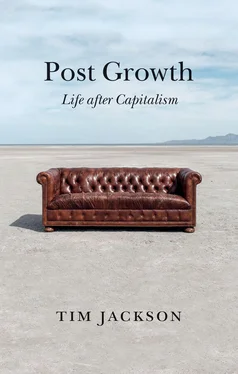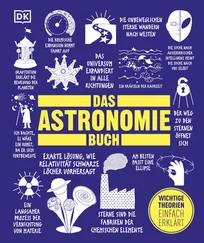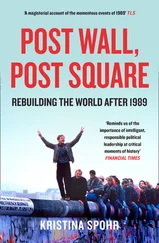Eventually we will find a better terminology to describe our world. Language sometimes situates itself a little too close to the object of its scrutiny. Happiness may or may not be the currency of tomorrow’s pensions. By then our sights will have been recalibrated. Our vision will have been renewed. We will have the ability to articulate a future for our economy free from the shackles that bind our creativity to the terms of an outmoded dogma.
But for today Post Growth is still a necessary thought-world. Even in the midst of change, we remain obsessed with growth. Post Growth is a way of thinking about what might happen when that obsession is over. It invites us to explore new frontiers for social progress. It points in the direction of an uncharted terrain, an unexplored territory in which plenty isn’t measured in dollars and fulfilment isn’t driven by the relentless accumulation of material wealth.
Life after Capitalism had been a tentative, speculative subtitle to this book. An invitation to the reader to imagine our prevailing economic paradigm as a temporary thing; a barely surviving remnant of old ways of being; not the immovable immutable truth it presumes itself to be. In the early months of its writing, capitalism was taken apart, piece by piece, in an increasingly astonishing effort to save lives and rescue normalcy. During the year 2020, the world witnessed the most extraordinary experiment in non-capitalism that we could possibly imagine. We now know that such a thing is not only possible. It’s essential under certain circumstances. The goal of this book is to articulate the opportunities that await us in this vaguely glimpsed hinterland. 12
Post Growth is an invitation to learn from history. An opportunity to free ourselves from the failed creed of the past. Just as the poet and civil rights activist Maya Angelou once invited the American people to do in the poem with which this prologue began. Its job right now is to help us reflect honestly on the situation we find ourselves in. Its deeper task is to lift our eyes from the ground of a polluted economics and glimpse a new way of seeing what human progress might mean. Soon it will not be needed. Its power for today is to free our lips from the mantra of yesterday and allow us to articulate a different kind of tomorrow.
1 1. ‘On the Pulse of Morning’ from ON THE PULSE OF MORNING by Maya Angelou, copyright © 1993 by Maya Angelou. Used by permission of Random House, an imprint and division of Penguin Random House LLC. All rights reserved. This poem was recited by Maya Angelou at the inauguration of US President Bill Clinton, 20 January 1993 (see Angelou 1993). The live performance can be found here: https://www.youtube.com/watch?v=M9nTt2F0Kdc.
2 2. Shakespeare, The Tempest, Act 2, Scene 1.
3 3. Berger 1967, p. 22.
4 4. History of WEF: https://www.weforum.org/about/history. ‘All shall be well’, from Revelations of Divine Love by Julian of Norwich. Online at: https://www.gutenberg.org/files/52958/52958-h/52958-h.htm.
5 5. Merkel at Davos: https://www.theguardian.com/business/live/2020/jan/23/davos-2020-javid-merkel-soros-us-brexit-trump-trade-wef-business-live?page=with:block-5e299d708f0879d539efd9c5. See also: https://www.bundesregierung.de/breg-en/news/speech-by-federal-chancellor-dr-angela-merkel-at-the-2020-annual-meeting-of-the-world-economic-forum-in-davos-on-23-january-2020-1716620.
6 6. Mnuchin: https://time.com/5770318/steven-mnuchin-greta-thunberg-davos/.
7 7. Trump v. Greta: https://www.cnbc.com/2020/01/21/our-house-is-still-on-fire-greta-thunberg-tells-davos.html.
8 8. Less snow in the Alps: https://time.com/italy-alps-climate-change/.
9 9. Sebastian Kurz in Davos: https://www.weforum.org/events/world-economic-forum-annual-meeting-2020/sessions/a-conversation-with-sebastian-kurz-federal-chancellor-of-austria-db08d177be.
10 10. Warmest January: https://edition.cnn.com/2020/02/13/weather/warmest-january-noaa-climate-trnd/index.html. Insider trading: https://fortune.com/2020/03/20/senators-burr-loeffler-sold-stock-coronavirus-threat-briefings-in-january/.
11 11. Death of Li Wenliang: https://edition.cnn.com/2020/02/06/asia/li-wenliang-coronavirus-whistleblower-doctor-dies-intl/index.html.
12 12. In picking the subtitle, I was influenced considerably by Wolfgang Streeck’s provocative title How Will Capitalism End? (Streeck 2016). But I should also pay homage here to Peter Frase’s excellent Four Futures, which used the same subtitle (Frase 2016).
‘We are in the beginning of a mass extinction. And all you can talk about is money and fairytales of eternal economic growth.’
Greta Thunberg, September 2019 1
‘Too much and for too long, we seem to have surrendered personal excellence and community values in the mere accumulation of material things.’
Robert F. Kennedy, March 1968 2
St Patrick’s Day, 17 March 1968. It was an unseasonably mild Sunday evening. The night air held the promise of an early spring as Senator Robert F. Kennedy arrived in Kansas from New York. He had just that day declared his candidacy for the 1968 Presidential race. To run, he would have to stand against the incumbent President, Lyndon B. Johnson. Senator against President; Democrat against Democrat: it looked like a tough fight ahead and Kennedy was by no means convinced of success. 3
But as he stepped down onto the Kansas City tarmac, he and his wife Ethel were besieged by a couple of thousand supporters who broke a police cordon and charged across the runway, shouting ‘Go Bobby Go!’ and demanding a speech. Nothing had been arranged and there was no loudhailer. So Kennedy sportingly threw a few remarks into the wind, before realizing he was barely audible. ‘That was my very first campaign speech,’ he said. ‘Now let’s all clap.’ He clapped his hands, the audience clapped theirs, and everyone laughed. It seemed like an auspicious start to a Presidential campaign.
The Senator was still noticeably nervous the next morning when he arrived at Kansas State University (KSU) for the first formal speech of the campaign. It had been scripted carefully for the occasion by his speechwriter, Adam Walinsky. First impressions matter. None of the campaign team could predict its impact. Kansas was one of the most conservative states in the country, loyal to the establishment and the American flag. It was perhaps the last place that could be expected to show sympathy for Bobby Kennedy’s anti-war message.
He opened, cleverly, with a quote from William Allen White, the former editor of a Kansas newspaper. ‘If our colleges and universities do not breed [students] who riot, who rebel, who attack life with all the youthful vision and vigor, then there is something wrong with our colleges,’ he said. ‘The more riots that come out of our college campuses, the better the world for tomorrow.’ It was a candid appeal to the generation who had brought the anti-Vietnam protest movement out of the ghettos and onto the campuses of liberal, middle-class universities across America. The students loved it. Kennedy’s opening salvo was met with a ‘happy roar’. 4
The excitement was palpable. The students in the hall – some of them perched on the rafters – cheered wildly at his all-out attack on the Vietnam war, his disdain for the Johnson administration and his outrage at the base morality of contemporary US policies at home and overseas. This was no cautious opening foray in a careful Presidential campaign. It was dynamite. The reception was better than anyone had dared to hope for. Eyewitnesses describe how one journalist, the Look Magazine photographer Stanley Tettrick, found himself hemmed in by a crowd of students, trying to stay upright in the pandemonium, while shouting to no one in particular: ‘This is Kansas, fucking Kansas! He’s going all the way!’ 5
Читать дальше












